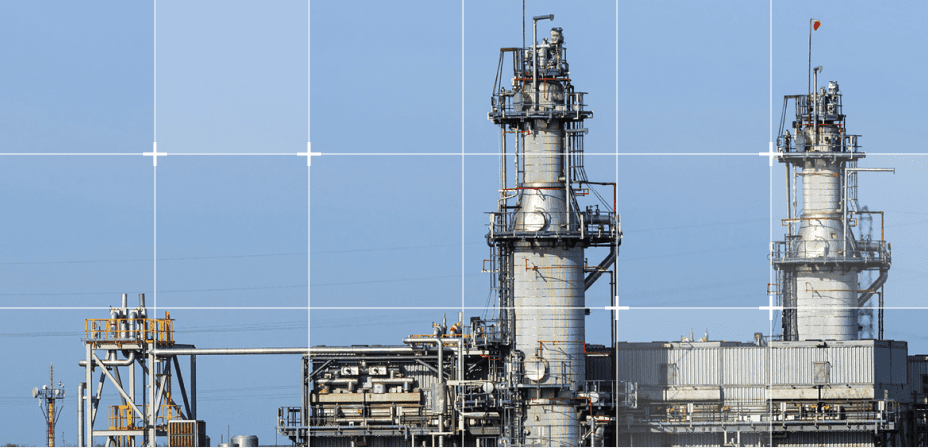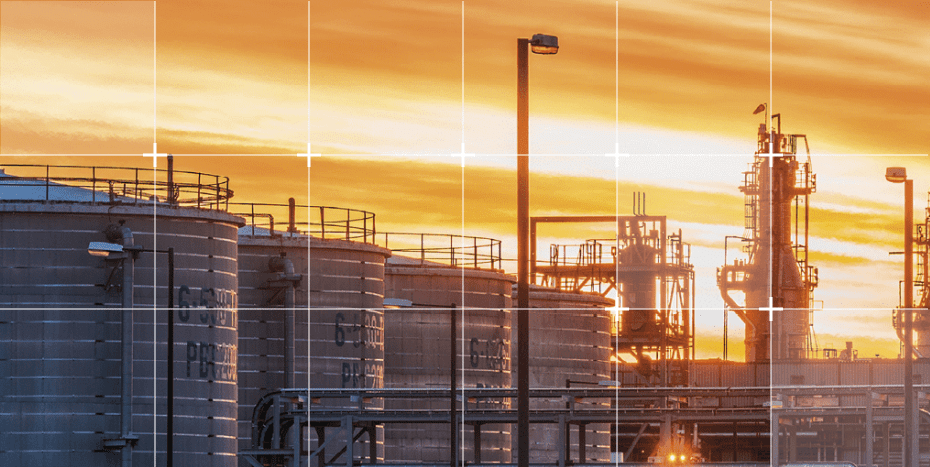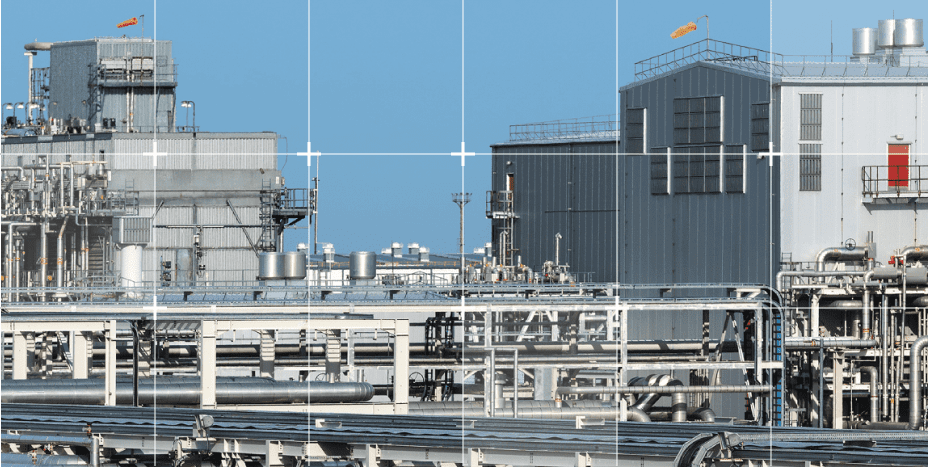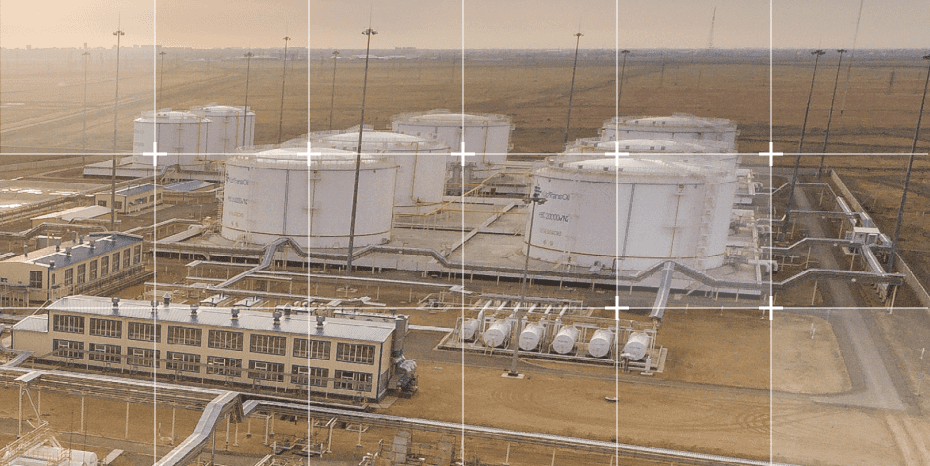KMG development strategy
Context
In its Development Strategy, KMG continues to prioritise embedding sustainable development into its core business processes, as the Company is aware of its considerable impact on the economy, environment, and society. KMG’s growth over the next ten years will be driven by expanding the resource base, enhancing production efficiency, extending the value chain, adopting advanced technologies, and minimising the carbon footprint.
The Company carefully selects and prioritises investment opportunities, considering only highly effective strategic projects for investments. KMG is committed to prudent capital allocation and focuses on maximising benefits for the shareholders and respecting the interests of the government in the oil and gas industry. The Company seeks to adhere to a conservative financial policy maintaining a balanced debt profile and securing a strong liquidity position.
KMG has a competitive edge in terms of a resilient production cycle from upstream to downstream that generates cash flows sufficient to deliver against the Company’s strategic targets. The Company exercises its priority right to assets onshore and offshore of the Caspian Sea to grow its resource base.
With cheap feedstock readily available, KMG sees petrochemicals as its natural point of growth to rely on in expanding and improving the Company’s value chain.
KMG’s successful growth story is underpinned by sustained cash flow generation on the back of increased production and a sustainable development strategy. Given the long‑term trends in the energy transition, KMG is building its portfolio of low‑carbon projects to remain financially successful in a future zero‑emissions world.
Vertically integrated national oil and gas company that meets the highest standards of safety, is committed to sustainability principles, and strives to maximise its financial performance.
We are effective and sustainable in our use of natural resources to ensure energy security, development and prosperity of Kazakhstan while also caring about future generations.
Reflecting its Mission, KMG has outlined two strategic directions of activity and set four strategic goals.
- Value creation. Goals:
- resource base sufficient to support the Company’s growth,
- improved efficiency across the Company’s value chain,
- business diversification and product portfolio expansion.
- Energy transition. Goal:
- sustainable development and gradual reduction in carbon intensity of production.

Resource base sufficient to support the Company’s growth
To ensure stable production levels over the next decade, KMG has exploration projects – onshore and offshore in the Caspian Sea.
As part of this strategic goal, KMG plans to grow organically and inorganically to add new reserves sufficient both for conventional operations and new promising areas of activity.
KMG will be exploring and developing new reserves in Kazakhstan, among other things in strategic partnerships with global oil and gas majors.
In 2023, we moved to the active stage for our offshore projects Abay and onshore projects Turgai Palaeozoic, Karaton Subsalt, and Taisoigan.
The Karaton Subsalt project represents a high‑potential exploration endeavour targeting deep subsalt deposits, which are similar to those of the adjacent Tengiz and Korolevskoye fields. In June 2023, KMG secured a subsoil use contract for Karaton Subsalt. In September 2023, a subsidiary – Karaton Operating – was incorporated and the parent company transferred the subsoil use rights to it.
The Taisoigan exploration block falls within the operational scope of Embamunaigas, KMG’s fully‑owned entity. The Company won exploration and production contracts for Taisoigan‑1 and Taisoigan‑2 in 2022. In May 2023, the subsoil use rights under these contracts were assigned to Embamunaigas to continue exploration. Contingent on successful exploration results, this initiative is set to uphold Embamunaigas’s production stability, compensating for the depletion of existing reserves.
In 2023, KMG and LUKOIL signed a number of agreements as part of the Kalamkas‑Sea–Khazar–Auezov project in Kazakhstan’s part of the Caspian Sea. The Kalamkas‑Sea, Khazar, and Auezov fields are located in Kazakhstan’s part of the Caspian Sea, with a water depth of approximately 8 m.
Plans for 2024 include the drilling of an inaugural prospecting well within the Turgai Palaeozoic block to a depth of 5,500 m.
Obtaining a contract for the Karazhar exploration block. The geological resources (P50) stand at 32 mln tonnes.
In 2024, we plan to drill and test the first prospecting well at the Abay offshore block to a depth of 2,500 m.
In 2024, the drilling of the first 5,500 m prospecting well is planned for the Karaton Subsalt block, funded by a strategic partner, with testing expected to be completed in 2025.
Design work for the Kalamkas‑Sea–Khazar–Auezov block is also on the agenda for 2024.
Also, based on the analysis of historical geological and geophysical data and basin modelling, five new promising blocks were identified for inclusion in the National Acreage Management Programme for further consideration of obtaining subsoil use contracts. A total of 17 prospecting and appraisal wells will be drilled in 2024.
- On 18 May 2023, KMG and SINOPEC formalised an Agreement on Cooperation in Geological Study of the Subsurface of the Republic of Kazakhstan. The document contemplates a joint study of 17 exploration blocks located within the main and underexplored sedimentary basins. Upon confirmation of the block prospects, the parties will consider the possibility of receiving a hydrocarbons exploration and production contract.
- On 9 February 2023, KMG and LUKOIL concluded a number of agreements on the development project for the Kalamkas‑Sea–Khazar–Auezov subsoil block in Kazakhstan’s part of the Caspian Sea. These included a Parties’ Agreement, Sale and Purchase Agreement for a 50% interest in Kalamkas — Khazar Operating LLP, and Financing Agreement for the Operator’s Activities.
- On 16 October 2023, in Beijing, KMG and China National Offshore Oil Corporation (CNOOC) signed a Memorandum of Understanding. The memorandum seeks to foster joint geological research on high‑potential exploration projects, broaden collaboration in existing fields, and promote joint efforts in oilfield services.

Improved efficiency across the Company’s value chain
KMG focuses on its core operations seeking to maximise benefits from production, refining, transportation, and marketing of oil and to improve operations across all key segments.
To make up for the natural decline in production at its operating assets, the Company continues working to increase oil recovery ratios and the time between repairs as well as engage in other measures to improve efficiency with a view to maximising well productivity.
At its large Tengiz, Karachaganak and Kashagan fields, the Company focuses on successful implementation of expansion projects and projects to maintain and extend production plateau.
In 2023, KMG put the East Urikhtau field into commercial operation. Urikhtau Operating was one of the first in Kazakhstan to switch to commercial development of fields under the improved model contract. As part of the ongoing development of the East Urikhtau field, there are plans to drill an additional nine production wells. This is expected to increase oil production to 200 thous. tonnes per year, while also boosting associated gas production to 100 mln m3 per year. The launch of East Urikhtau is a major step towards the full‑fledged development of the Central Urikhtau field. Central Urikhtau, identified as a gas condensate field, holds substantial reserves of natural gas. The projected annual output for this block is set at 1 bln m3 of gas.
The Company is also committed to effectively leveraging the existing oil transportation infrastructure to enhance its exports and transit businesses. In response to external factors and geopolitical challenges, KMG continues developing additional routes to export Kazakhstan’s oil. The Company is in talks with partners to open the Southern Corridor and ramp up supplies to China.
Starting from 2023, as per the agreements between KMG and SOCAR, Kazakhstan’s oil will be transported via the Aktau–Baku–Ceyhan route at a rate of 1.5 mln tonnes annually. With our Azerbaijani partners, we are working on a plan to step up the transit of Kazakhstan’s oil via Azerbaijan’s territory. As oil production figures go up, KMG is looking into potentially increasing the volumes of transportation via the Baku–Tbilisi–Ceyhan pipeline. The viability of amplifying throughput will depend on the route’s economic benefits. In 2023, KMG also initiated oil shipments through the Atyrau–Samara pipeline, reaching onward to Germany via the Druzhba pipeline, culminating in the delivery of 993 thous. tonnes to Germany for the year.
In January 2023, to refine maritime operations technology‑wise, KMG established a joint venture with Abu Dhabi Ports (ADP) from the UAE and bought two tankers, Taraz and Liwa. The vessels are now actively engaged in transporting Kazakhstan’s oil in the Caspian Sea. Furthermore, from mid‑2023, KMG/ADP’s combined tanker fleet embarked on its first joint venture of carrying Tengiz oil in the open sea, following a deal with Tengizchevroil. These tankers initiate their journey from the port of Novorossiysk, delivering oil globally. Previously, this has only been handled by Chevron Tankers.
A major priority for KMG is to ensure uninterrupted operation of oil refineries and meet domestic demand for oil products. Today, having upgraded refineries across Kazakhstan, the Company delivers on this strategic goal for the nation while also exporting part of the oil products.
The Company is engaged in ongoing efforts to optimise its operating costs and make the supply chain more effective.
- On 20 March 2023, the first Tengiz oil was shipped towards Baku, proceeding from Ceyhan starting April. In 2023, the Port of Aktau dispatched a total of 1,057 thous. tonnes.
- On 10 May 2023, gas production commenced at the South Aksay gas condensate field in the Kyzylorda Region.
- On 20 June 2023, KMG and Rosneft Deutschland signed an agreement for the monthly supply of 100 thous. tonnes of crude oil from the Karachaganak field to PCK Raffinerie in Schwedt, set to continue until the end of the year.
- On 22 June 2023, in Baku, a memorandum of strategic cooperation was signed with SOCAR to facilitate the transit of Kazakhstan’s oil through Azerbaijan. The memorandum outlines overarching terms and principles for collaboration to ramp up transit capacities necessary for Kazakhstan’s oil to go through the Baku–Tbilisi–Ceyhan pipeline.
- On 25 July 2023, Atyrau Refinery started producing AI‑92 petrol compliant with the K5 environmental standard, equivalent to Euro 5.
- On 9 October 2023, KMG entered into an SPA with TotalEnergies EP Danmark A/S for a 100% stake in Total E&P Dunga GmbH, finalising the transaction on 20 November 2023.
- On 17 October 2023, a project to boost the Aktau Bitumen Plant’s (Caspi Bitum) processing capacity from 1 mln to 1.5 mln tonnes of oil annually was formalised by an agreement signed in Beijing. The project entails upgrading the existing primary oil refining unit (EDD‑AVDU), with the timeline spanning 2023–2024.
- On 25 November 2023, a ceremonial event in Aktau marked the commissioning of two oil tankers, Taraz and Liwa, added to Kazakhstan’s naval fleet. The tankers were purchased in furtherance of the directive of the Republic of Kazakhstan’s President Kassym‑Jomart Tokayev to develop alternative oil export routes.
- A roadmap committing to Pavlodar Refinery’s capacity increase to 12 mln tonnes per annum was signed on 29 November 2023.
- On 2 December 2023 in Dubai, KMG and AD Ports Group solidified Heads of Terms for ship building and repair facility in Kazakhstan.
- On 4 December 2023, KMG put the East Urikhtau field into commercial operation.
- On 21 December 2023, Ural Oil and Gas LLP, in which KMG holds a 50% stake, successfully put the Rozhkovskoye gas condensate field in the West Kazakhstan Region into commercial operation.

Business diversification and product portfolio expansion
KMG is strongly involved in developing national petrochemical industry with support from the government of the Republic of Kazakstan, which is expected to significantly boost the national economy as growth in the petrochemical sector will have a multiplier effect on the entire domestic market.
Petrochemicals are progressively becoming the principal catalyst for global oil demand. The Company will rely on existing and new hydrocarbon resources to run petrochemical projects and make new products amid global shifts in oil demand in the long run.
In 2023, KMG drafted a Concept for Petrochemical Business Development to be approved in 2024.
- On 1 June 2023, KMG PetroChem and Tengizchevroil formalised the Heads of Agreement for the gas separation unit project.
- On 8 June 2023, Pavlodar Refinery and Air Liquide Munay Tech Gases signed an agreement for building a hydrogen unit designed to yield up to 160 thous. tonnes of winter diesel fuel annually.
- On 17 October 2023, equity agreements for a stake in a planned polyethylene project were signed between KMG, SIBUR, and SINOPEC in Beijing.
- In 2023, KPI Inc. commenced the production of new polypropylene grades: PP H031 BF/7, PP H270 FF/7, and PP H036 BF/7.

Sustainable development and gradual reduction in carbon intensity of production
KMG recognises the importance of its economic, environmental and social impact and will continue embedding sustainability principles into the key business processes in order to ensure the alignment of the Company’s economic, environmental and social priorities and corporate governance targets. The Company integrates its ESG goals within the framework for management performance evaluation on an ongoing basis.
In November 2023, KMG received an updated ESG Risk Rating score for 2022–32.3. The Company received a “strong” score for its ESG risk management from Sustainalytics. By 2031, KMG aims to solidify its standing as a company with medium ESG risks.
The Company seeks to improve its ESG metrics and integrates ESG goals into corporate and functional key performance indicators (KPIs). We are committed to the high standards of social responsibility inspired by the principles of partnership with our employees and trade unions.
The Company is equally devoted to enhancing the management of staff health and elevating our employees’ quality of life. To introduce unified approaches and improve occupational health performance, KMG Group developed the Employee Health Management Programme.
With the climate agenda now a matter of strategic importance, the Company runs the 2022–2031 Low‑Carbon Development Programme, setting out KMG’s climate ambitions and key approaches and measures for carbon footprint reduction.
In its commitment to limit carbon footprint, the Company pursues a balanced approach, targeting a 15% reduction in greenhouse gas emissions by 2031 from the 2019 level.
On top of that, we plan to implement joint renewable energy projects with KMG’s share of the total capacity of at least 300 MW.
On 18 January 2024 in Rome (Italy), KMG and Eni signed the Joint Confirmation Agreement on the initiation of the Zhanaozen hybrid power plant construction project. The initiative provides for the construction of a wind power plant (77 MW) and a solar power plant (50 MW) in collaboration with Eni’s subsidiary Plenitude, as well as a 120 MW gas power plant in Zhanaozen to ensure a stable electricity supply to KMG’s industrial facilities in the region.
Additionally, the 1 GW Mirny wind power plant project with a 300 MW/600 MWh electricity storage system undertaken by KMG in collaboration with Samruk‑Kazyna and Total Eren, was initiated in the summer of 2023. The Mirny project aims to establish major electricity generation capacities in the southern region of the Republic of Kazakhstan, while simultaneously reducing CO2 emissions and generating offset credits as part of KMG’s Low‑Carbon Development Programme.
- On 1 November 2023, as part of French President Emmanuel Macron’s official visit to Kazakhstan, a Joint Venture Agreement was finalised with Total Eren for a 1 GW wind power plant. The JV comprises Total Eren (60%), Samruk‑Kazyna (20%), and KMG (20%). This initiative builds on the Term Sheet entered into by Samruk‑Kazyna, KMG, and Total Eren in November 2022.
- On 3 December 2023, KMG signed a Memorandum of Understanding with UNEP and joined the OGMP 2.0 (the Oil & Gas Methane Partnership) initiative spearheaded by UNEP and the International Methane Emissions Observatory (IMEO).
- On 13 December 2023 Astrakhan–Mangyshlak, the upgraded and expanded main water pipeline in the Atyrau Region, was brought on‑stream in a ceremony event.
- On 18 January 2024 in Rome, KMG and Eni signed the Joint Confirmation Agreement on the initiation of the Zhanaozen hybrid power plant construction project.
By delivering on its four strategic goals, KMG will contribute to diversifying the national economy and reducing Kazakhstan’s carbon footprint, which will help grow the Company, promote the well‑being of people in Kazakhstan, and preserve the environment for generations to come. Whenever there are attractive M&A opportunities and the market environment is favourable, KMG searches for and acquiring new assets.
The Company’s Development Strategy, along with its strategic goals and objectives, is disclosed for all stakeholders on its corporate website. Furthermore, KMG Group consistently holds annual strategic meetings to tackle systemic and forward‑looking challenges that influence the Company’s operations.